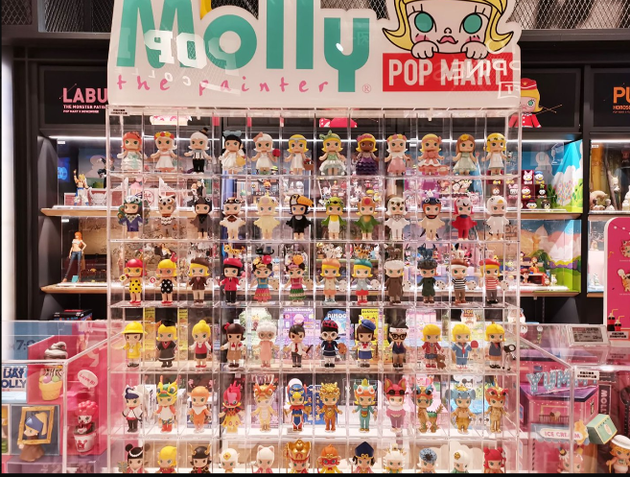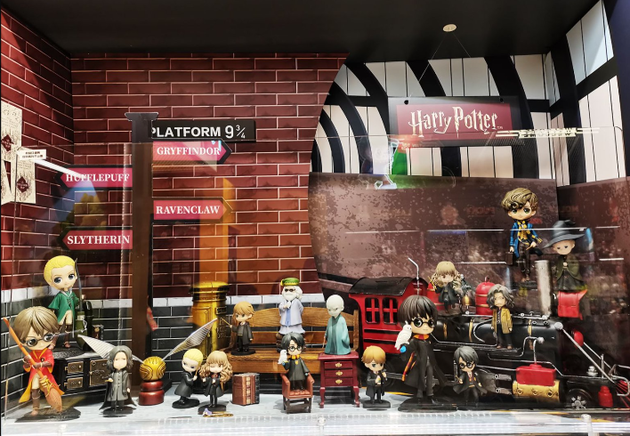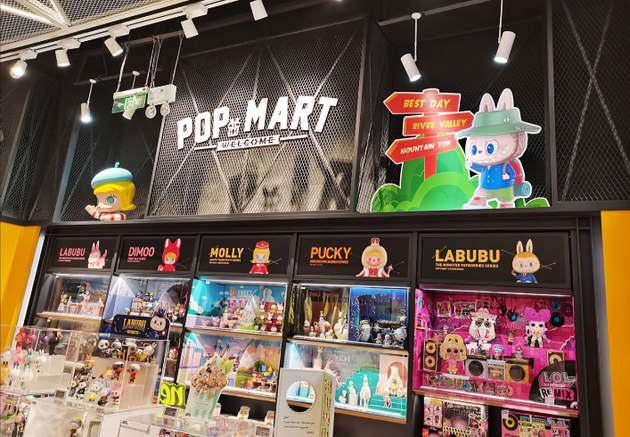
File photo/NBD
"I just want to pull DADA (the shy one)!" Brad Pitt widened his eyes and stretched his grin, imitating LABUBU’s toothy smile. Last month, while touring for his film F1: The Fast Lane, the Hollywood A-lister opened a blind box on camera and laughed that he hoped the next toy inside would be the coy little monster.
Pitt is hardly alone. Captain America himself, Chris Evans, and actress Dakota Johnson have both unboxed LABUBUs on red carpets. From Los Angeles to London, queues of teenagers and twenty-somethings coil around city blocks.
Since the start of 2025, LABUBU—a small monster with high, pointed ears and serrated teeth, created by Chinese artist Kasing Lung and owned by Pop Mart—has become the planet's most unlikely superstar. But LABUBU's overnight success is in fact a decade in the making. Below is a step-by-step reconstruction of how a cult vinyl figure became a global cultural export—and what that tells us about China's next creative industries.
THE THREE-ACT ORIGIN STORY
Act I: Southeast Asia, December 2024–January 2025
The fuse was lit in Bangkok. Thai-Korean superstar Lisa posted an Instagram Story cradling a mint-green LABUBU. By New Year, Thai princess Sirivannavari was photographed at Paris Couture Week with a LABUBU key-chain dangling from her Hermès Kelly. Overnight, the toy became both national pop-culture and fashion flex.
Act II: Europe & North America, April–June 2025
In 2024, the IP franchise that houses LABUBU—THE MONSTERS (also known as "The Sprite Family", with LABUBU as its flagship character)—generated 3.04 billion yuan in revenue, a year-on-year surge of 726.6%, making it Pop Mart's single largest revenue contributor.
Pop Mart's overseas team calls it the "Monster Invasion Tour". From April to June this year, global platforms—Instagram, TikTok, YouTube—channeled LABUBU fever into the United States, the United Kingdom, Canada, Australia, Japan and South Korea. Overnight, Pop Mart's app hit No. 1 on the U.S. App Store shopping chart. Rihanna posted an unboxing; David Beckham used one as a car-mirror charm; the Kardashians built a pastel LABUBU wall for a baby-shower Instagram reel. Resale prices tripled before the boxes even arrived in stores.
Act III: Homecoming, May 2025
Following its success abroad, LABUBU brought the story we all know back home. Riding massive buzz and market frenzy, it took the Chinese mainland by storm.

File photo/NBD
THE LONG BACKSTORY
Most profiles miss a crucial fact: LABUBU is ten years old.
The Chinese blind-box boom began in 2016 with Molly, another Pop Mart IP. Molly proved that China could mint its own collectible culture. According to the China Designer Toys & Animation Industry Report 2024, the total value of China's designer-toy sector is projected to reach 110.1 billion yuan by 2026, expanding at a compound annual growth rate of more than 20%.
The meteoric rise of LABUBU didn’t happen overnight.
Celebrity Flywheel
From Lisa to Beckham, star endorsements acted as social proof in radically different fan cultures. Each post widened the funnel by an order of magnitude.
Scarcity by Design
Hidden chase figures, regional exclusives and surprise "midnight drops" keep supply permanently below demand. Pop Mart even stages temporary store closures to cool secondary markets.

File photo/NBD
Emotional Affordance
The toy's wide-eyed, slightly creepy grin hits the same aesthetic nerve as Japanese kimo-kawaii (gross-cute). Psychologists call it the "Care Bear paradox": ugly-cute triggers stronger protective instincts than pure cute, making adults willing to queue like teenagers.
Pop Mart bypasses traditional distributors and sells directly to consumers—online, in app, or in its own glass-box stores. DTC margins fund rapid reinvestment: new series drop every 45–60 days, each accompanied by short animated teasers, AR filters and pop-up events. The result is a content-commerce loop that feels more like Fortnite skins than conventional toys.
A LABUBU animated series is in post-production; a theme-park zone will open inside Pop Mart Land in 2026.
Founder Wang Ning's answer to the inevitable "How long can this last?" is pragmatic: "An IP's lifespan equals the amount of love you keep pouring in. The moment you stop, it stops.
Whether LABUBU is still headline fodder in 2026 matters less than whether China's next ten-year overnight sensation is already incubating in a studio somewhere.


 川公网安备 51019002001991号
川公网安备 51019002001991号





